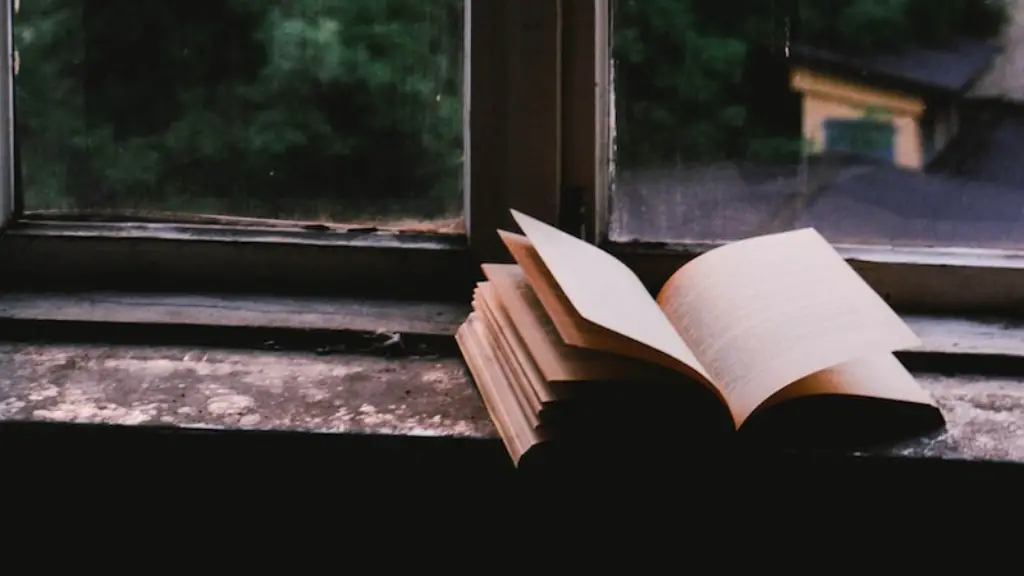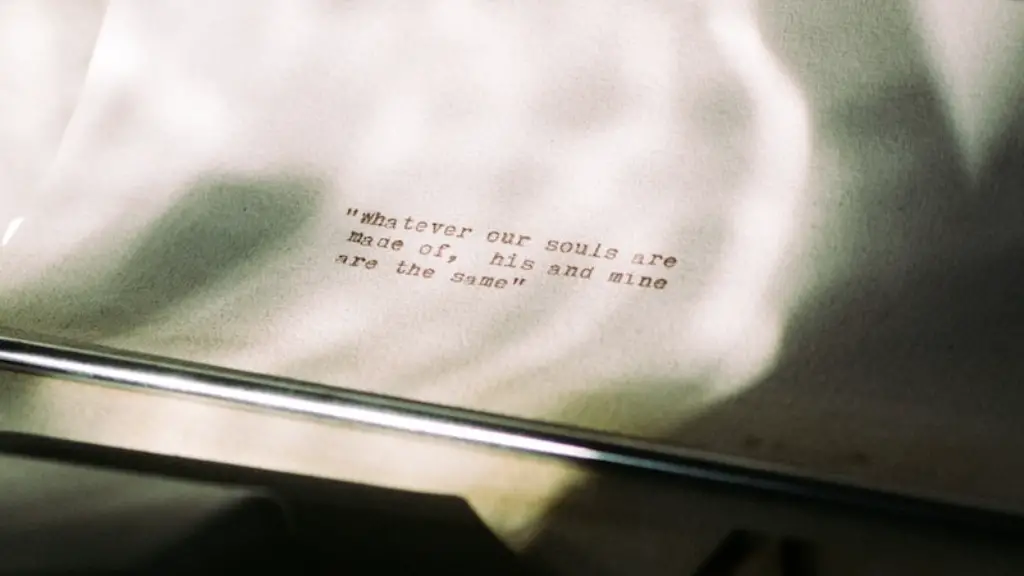Why is Poetry Hard to Write
Poetry is one of the most beautiful literary forms. Writing a poem is a difficult task for many for because the process of creating a poem requires the entire person: heart, soul, mind, and body. It’s a way of expressing ourselves that can often be difficult to pin down into words. It is also a hands-on approach to self-expression, one that requires a certain level of creativity and knowledge in writing.
Poetry is a sophisticated and complex form of writing, and like any other kind of writing, it requires rigorous practice, dedication and focus. The writer needs to cultivate strong language skills and the right techniques to create a piece of thoughtful and meaningful literature. It should touch a nerve, bring out the reader’s emotions and tap into the core of their own experience. To achieve this, writers must become comfortable with weaving words into verse, setting their thoughts and feelings into prose.
Creating a poem is a continuous struggle between the natural state of the creative mind and its need to transform signs and symbols from one form to another. The writer must become an active participant in that struggle, becoming familiar with the elements of poetry: rhyme, meter, imagery and metaphor. These are the tools of the trade and the writer must learn how to use them to create meaningful and emotive pieces.
Besides mastering the technical side of poetry writing, writers must also be open enough to explore their inner realms for inspiration. This includes probing the depths of their imagination, connecting to their memories and memories of others, and understanding how to describe their personal reflections and moods. It means journeying through the vastness of the human experience, searching for profound connections between the reader and the written words.
Writer must become vulnerable to the thoughts and feelings that drives the reader and shape the poem. This requires a high level of emotional maturity and courage to be able to take chances and express unexplored emotions. It could be a thrilling yet incredibly painful experience, as the writer strives to capture the limitless, shifting nature of thoughts and feelings.
No matter how much technical know-how or emotion a writer may have, generating a good poem of any sort still involves facing a blank sheet and committing to conveying something meaningful and worth reading to it. Poetry writing is both a learning process and a journey of self-discovery, and it takes a lot of practice, dedication and patience to become successful in the craft.
Stressing on Originality and Authenticity
Originality can be one of the toughest aspects of creating a poem. It is hard to come up with an idea that has not been previously talked about, and that stands out in some way. The challenge of conveying something without it being cliche or boring is also daunting. Writers must be constantly looking out for new approaches and methods to express what they want to say in a unique manner. It is also imperative for the writer to stay true to themselves, in order to evoke the most authentic and poignant responses in the reader.
In the end, it’s up to the writer how they want to express themselves. Some may be limited to traditional structural forms and rules, while others prefer to write in a more improvisational and spontaneous manner. No matter the chosen style, originality and authenticity should always be maintained. This is what makes a piece of poetry resonate with readers.
In addition to being authentic, writers must also ensure that each poem has a cohesive form and structure. This includes being aware of the strength and limitation of words and attending to the aesthetic qualities and nuances of language. Paying attention to detail and creating dynamic and rhythmic patterns in language can increase the impact of a poem.
Moreover, the words the writer chooses to use for the poem must also be carefully considered and carefully arranged. Ultimately, the goal is to use language to evoke emotions in the reader and provoke them to view the world and life in a different light.
The Challenge of Writing Poetry
All in all, writing poetry is a difficult but rewarding task. It requires writers to dig deep and push their level of creativity and writing skill. Poem writing is a process of constant growth and exploration. With each poem written, the writer finds more understanding and inspiration, and the possibility to create something even more meaningful and beautiful than before.
One of the most important parts of the journey is to remain humble and to be aware that comments and criticism are for the improvement of the craft. Taking on board different perspectives and advice is vital for any writer. This will help them grow, stay motivated and become a better overall writer.
Moreover, repositioning, changing one’s poem and writing several drafts can also be beneficial. This is an important part of the writing process, as they help the writer to explore the poem more and find new ways of expressing their ideas. This helps to make the poem more meaningful and effective, and it is also an opportunity for creativity.
On top of all this, there is also the immense joy of poetry writing. It is a fulfilling and meditative craft, which allows the writer to express the beauty of the world from their perspective, explore the vastness of the human experience and reflect on the indefinable nature of existence.
Making the Best out of Writing Poetry
To be successful in this craft, writers must also be willing to challenge themselves and take risks. They must learn to go beyond their comfort zones and explore new ways of expression, become more imaginative and craft stories that resonate with others. Writers must also be prepared to face disappointment and rejections, and to remind yourself of the passion and motivation behind their poem.
Writing poems can also be an intense process, as they strive to uncover the hidden depths within their souls. As a result, writers must also remember to be kind to themselves and to set boundaries. This will help to keep them grounded and maintain their self-care as they strive to cultivate their writing skills.
In the end, writers must focus on developing their own voices and styles, as this is essential in creating meaningful pieces of literature. Writing from the heart is the best way of producing meaningful and impactful pieces of art. A writer must be willing to take the time to craft their work and embrace the beauty of their words.
Sharing of Poetry Writing
For any writer, it is also helpful for them to join a poetry writing group or community. This serves as a support network for them, as well as an opportunity to hear different perspectives from other writers and readers. Not only can this help in constructive criticism of their own poem, but it also provides an opportunity to learn from the works of others.
Aspiring poets must also read a lot of poetry, and to make sure they keep pushing themselves to create more. This means exploring new authors, genres, and poetic forms. This will help them stay inspired and motivated to create more meaningful experiences.
Ultimately, writing poetry demands that writers make some sacrifices. They must be ready to dedicate a lot of time and energy to mastering the craft, as well as wrestling with their own thoughts and feelings in order to write meaningful poems.
Stepping out of Fear and Doubt
As with any kind of creative pursuit, writers must also learn to step out of the fear and doubt that comes with poetry writing. They must not be afraid to express their own unique and authentic voice, their own style and approach. Being able to do this will help the writer create a truly unique and powerful poem.
Finally, writers must also be open to feedback. Constructive criticism from readers and other writers can be very helpful in improving their poem. Writers can use this feedback to further refine and enhance their writing, as well as to gain insight into the strengths and weaknesses of their writing.
No matter how hard it may be to write a poem, it is a joyous experience to see a poem slowly uncover itself. With practice, dedication and commitment, any writer can slowly become a master of the craft and create stunning works of art.





